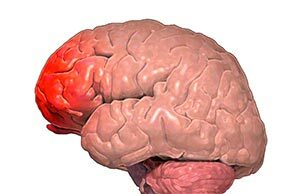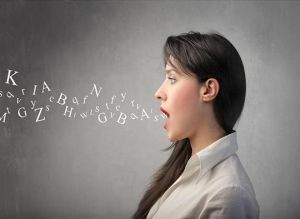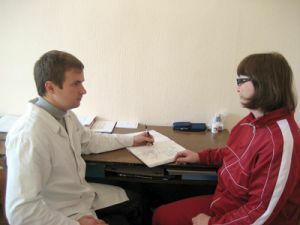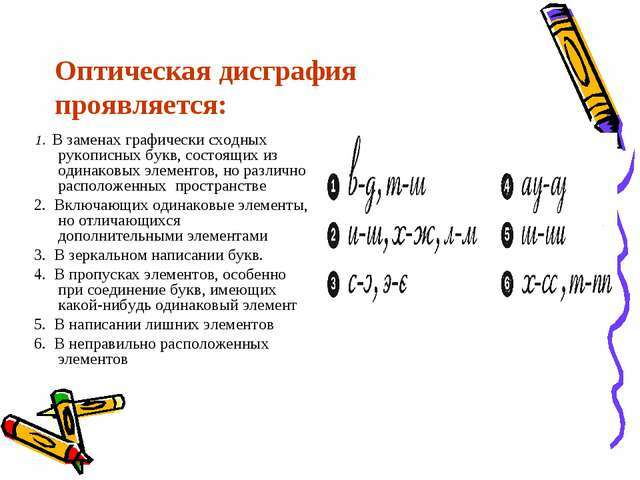 The loss of speech in whole or in part for a person is a difficult situation, which significantly violates the quality of life and leads to disability.
The loss of speech in whole or in part for a person is a difficult situation, which significantly violates the quality of life and leads to disability.
In medicine, this problem is called aphasia. It occurs when oppression of functional activity due to the defeat of certain areas of the cerebral cortex and is a symptom of a serious neurological disease or trauma.
Depending on the localization of the pathological focus, speech disorders can have different manifestations, this is associated with the identification of several major types of aphasias.
One of the most severe forms is sensorimotor aphasia, which is a combination of two types of speech disorders( sensory and motor).What is the peculiarity of this clinical symptom and how to cope with it?
Factors provoking disorders of
The development of aphasia is always associated with a pathological process or damage to the parts of the brain responsible for speech. This function in each hemisphere has motor( motor) and sensory( sensitive) support.
For example, motor afferent and efferent aphasia( a violation of the ability to pronounce words) appears when the affected area of the cortex, which is responsible for movement( the lower frontal gyrus of the left hemisphere).
Sensory form of speech disorder( lack of understanding of the meaning of one's own and other people's words) is associated with pathology in the cortical part of the auditory analyzer( the upper part of the temporal lobe of each hemisphere).Combined damage to these areas leads to the development of total( sensorimotor) aphasia.
The main causes of this symptom:
- acute disorders of cerebral circulation( stroke, hemorrhage) - the most common cause in adult patients;

- thrombosis and embolism of cerebral vessels;
- head injury;
- neurosurgical operations;
- malignant brain tumors;
- inflammatory processes( encephalitis);
- is a chronic progressive disease leading to degenerative changes( Alzheimer's, Peak's).
Predisposing factors are:
- venerable age;
- adverse family history;
- associated serious illnesses - atherosclerosis, decompensated diabetes mellitus, arterial hypertension, ischemic heart disease, frequent ischemic attacks, heart and vascular malformations.
Clinical manifestations of
Sensory motor aphasia is a combination of symptoms characteristic of both types of speech disorders. Such a complicated clinical situation causes considerable difficulties in communicating with people with a preserved intellect and leads them to disability.
Motor aphasia manifests itself in two forms:
- afferent form of - the patient is not able to pronounce individual sounds at will or at the request of someone because of problems with articulation, however spontaneous pronunciation of such sounds at other times is possible;
- efferent form of - a person can speak individual sounds or syllables, but can not put them into words, he does not have the ability to switch from one sound to another, so this patient often repeats the same syllable or sticks immediately at the first utterance and ceasescontinue to talk at all.
 Sensory( acoustical-gnostic aphasia) is characterized by a complete or partial lack of understanding of one's own or another's speech under normal hearing.
Sensory( acoustical-gnostic aphasia) is characterized by a complete or partial lack of understanding of one's own or another's speech under normal hearing.
Such patients can correctly pronounce words and construct phrases, often they quickly and often speak, not understanding the meaning of what they heard. Suffers as spontaneously appearing speech, and the repetition of the speech therapist, the description of objects and pictures or reading aloud.
The combination of symptoms of sensory and motor aphasia results in the clinic of sensorimotor disorder, which is the most severe among all speech disorders. The patient does not understand the others and can not speak normally.
The degree of loss of speech and the ability to recognize correctly the conversation surrounding people will depend on the individual characteristics and severity of the existing damage.
This complex type of aphasia is also called total aphasia due to violation of all aspects of human speech functions. Often it can be combined with other neurological manifestations( for example, with hemiparesis) or general symptoms( absent-mindedness, apathy, drowsiness).
Medical care
For patients with aphasia, two treatment options are needed.
- Medical assistance - the treatment of the underlying disease that caused the occurrence of a speech disorder, is performed under
 by a neurologist or neurosurgeon. These can be conservative measures( drugs to improve cerebral circulation, metabolic processes) and surgical methods( removal of the tumor, abscess) followed by the appointment of exercise therapy, massage, physiotherapy, mechanotherapy, methods of psychological influence.
by a neurologist or neurosurgeon. These can be conservative measures( drugs to improve cerebral circulation, metabolic processes) and surgical methods( removal of the tumor, abscess) followed by the appointment of exercise therapy, massage, physiotherapy, mechanotherapy, methods of psychological influence. - Logopedic correction is a long-term, painstaking work with a specialist, aimed at the gradual restoration of lost speech functions. The hope for a spontaneous cure in this case is rather illusory, but it is possible. Corrective work usually lasts for 2-3 years. The scope and content of the classes conducted are determined by the type of violations.
The prognosis depends on the individual characteristics of each patient - his age, health status, the presence of concomitant diseases and family predisposition, as well as the location and size of the lesion in the cerebral cortex.
In any case, the recovery will be more successful with the early commencement of rehabilitation work and the implementation of all the doctor's recommendations in full, as well as with the active participation and assistance of relatives and friends of the patient with aphasia.



